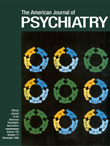Combining Cognitive Testing and Informant Report to Increase Accuracy in Screening for Dementia
Abstract
Objective:Cognitive testing and an informant report questionnaire were combined to determine whether their use in combination could improve accuracy in screening for the diagnosis of dementia over either test used alone. Methods of combining test scores that can be readily applied in clinical settings were developed and assessed. Method:The subjects were 106 patients admitted to the geriatric hospital or outpatients assessed at the memory clinic of the university hospital system in Geneva, Switzerland. The instruments used were the Mini-Mental State and the short form of the Informant Questionnaire on Cognitive Decline in the Elderly. The diagnosis of dementia was made according to DSM-IV criteria.Results:Logistic regression demonstrated that the combination of the Mini-Mental State and the Informant Questionnaire on Cognitive Decline in the Elderly resulted in more accurate prediction of caseness than either test alone. The performance of logical “or” and “and” combinations of test results and a weighted sum of scores on the two tests as screens for dementia were investigated by using receiver operating characteristic analysis. By using suitable cutoff points, both the “or” rule and the weighted sum were shown to be capable of improving performance over that of either test used alone.Conclusions:This study shows that informant report can be formally incorporated into assessment for dementia in such a way as to increase the accuracy of detection of cases and noncases. A graphical method was developed that enables the most robust approach to be applied to individual cases without any calculation. Am J Psychiatry 1998; 155: 1529-1535



